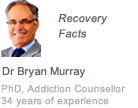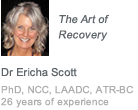The Signs Of Alcohol Addiction
Everyone knows that there are certain symptoms and signs of alcohol addiction. Everyone, generally speaking, also knows how to spot these symptoms at a glance, which is what makes alcohol so difficult to hide. These symptoms may include:
- Bloodshot eyes
- Runny nose
- Dizziness/Loss of balance
- Feelings of faintness
- Daily nausea
- Throwing up
- Lack of appetite
- Tardiness
- Frequent hangovers
Most friends and family members, unless they have had direct experience with alcohol addiction, will not immediately recognize these signs for what they are. It may take some time, an escalation of the signs to the point that they cannot be ignored or the introduction of a friend or family member with relevant experience into the situation, for it all to begin to make sense. Eventually, of course, depending upon how good an actor the alcoholic is all will become clear. There are other things to watch out for as well. If someone is experiencing repeated legal problems which directly relate to drinking, drinking as a way to relax or de-stress or neglecting responsibilities at home, work, or school then something is wrong.
Unless an alcoholic has reached, for them, what is rock bottom and they simply cannot continue the using, the lies, using others and blaming everyone and everything else, they will continue. At rock bottom they may be afraid to tell the truth because they know that if they do someone will take away, or try to take away, their booze. It is obvious, however, to most individuals, that most people do not experience repeated legal problems due to anything, let alone drinking. Most people do not neglect their responsibilities when it comes to school, work or home.
Why do people have an addiction to alcohol?
There is no single clear answer to this question as there are a multitude of reasons why people become alcoholics. Many of these factors include genetics, their home life as a child, how they were raised, the social environments that they chose to spend time in during their adolescent years, and finally, their emotional state throughout their lives. For many, alcoholism runs in the family from one generation to the next and they have often associated closely with heavy drinkers in the past and/or currently. There are those members of society who suffer with mental health problems such as depression, bipolar disorder or anxiety find that self-medicating with alcohol gives them a false sense of calm and control.
Do you have the signs of alcohol addiction?
Drinking problems are found all over the world in so many different cultures and people and the effects are as varied as the people who suffer from alcoholism, that the line between a person who drinks socially and that of someone who abuses alcohol, is almost imperceptible. The main indicator that you may have a problem is if your drinking is causing problems in your life.
To better determine whether you are exhibiting signs of alcohol addiction ask yourself these simple questions:
- Do you have feelings of guilt when it comes to your drinking?
- Do you lie to others or try to hide your drinking habits?
- When you need to relax or “feel better” is your first instinct to have a drink?
- Do you often black out or have no memory of what you did while you were drinking?
- Have friends and family expressed their concern about your drinking?
- Do you often drink more than you intended to?
If you have answered yes to any of these questions, you might want to make an appointment with a medical practitioner or counselor to talk about it.
What is the difference between alcohol abuse and alcohol addiction?
There are many people that, when given the opportunity to drink will drink too much, or abuse alcohol. This is generally referred to as alcohol dependence. Unlike alcoholics, alcohol abusers have some ability to set limits when it comes to their drinking; they will not drink on their own (only at a party), they will only drink beer and so on and so forth. Nevertheless, their abuse of alcohol is just that.
Of course, not all alcohol abusers become alcoholics, but there are big risks being taken. For some people, alcoholism develops as a direct response to sudden stressful changes; a relationship breakup, a death, retirement, loss of a job or any other type of loss. This is generally referred to situational alcoholism that can usually be worked through; however, this type of alcoholism may develop into long-term alcoholism if not treated in the correct manor, and quickly. More often than not it gradually creeps up on the user as their tolerance levels to alcohol increase in conjunction with the frequency of drinking spurts. The risks of becoming an alcoholic are even greater if one is a “binge drinker” or even an everyday drinker.
The Two Main Signs of Alcoholism
The first warning sign of alcoholism is tolerance. If the drinker has to drink more than they used to in order for them to feel “buzzed” or relaxed, that means that their bodies have built up tolerance levels that need to be exceeded to get the desired effect. Often these people are able to drink more than others without getting drunk. Over time, the user is going to need to drink more and more alcohol to feel the desired effects.
The second sign of alcohol addiction is withdrawal. Alarm bells indicating that alcohol addiction has developed could be that someone needs a drink to steady the shakes in the morning, or feels that a drink will ease, or get rid of the hangover effects. When one drinks excessively, their body gets used to the alcohol and needs a certain amount to function normally. When the alcohol is taken away withdrawal symptoms can occur within the first 24 hours:
- Depression
- Irritability
- Fatigue
- Loss of appetite
- Headache
- Anxiety
- Nausea and vomiting
- Insomnia
- Sweating
- Shaking or trembling
In severe cases, withdrawal from alcohol addiction can sometimes involve hallucinations, seizures, confusion, fever and agitation. These withdrawal symptoms can be dangerous and should be done in a safe environment. If you suspect that you may have this problem, or know of someone who might, call your medic and get a referral.
Apart from the main signs of alcohol addiction and dependence there are other indicators that should not be overlooked:
- No control over the amount of alcohol consumed
if the drinker drinks more and for longer than they intended to or despite limits acceptable to the setting hey are in. - There is a desire to quit but no follow through
the drinker knows that they need to cut down or stop drinking, but all efforts have been met without success as of yet. - Other activities have been given up and replaced by alcohol
the drinker is spending less time on activities that used to be important in their lives such as spending time with the family, going to the gym or pursuing hobbies because of their alcohol use. - Alcohol takes up all energy and focus
a lot of time is spent drinking, thinking about drinking and recovering from its effects. The drinker has very few interests unless they revolve around drinking. - Continuing to drink despite knowing that it is causing problems
alcohol can damage marriages, increase depression and cause serious health problems. Many alcoholics or people with drinking problems continue to drink despite the problems that the alcohol is causing.
Getting help after seeing the signs of alcohol addiction
The first obstacle that an alcoholic may find is acknowledging that they have a problem in the first place. Admission is the first step down the road to recovery. The second step is reaching out for support. No matter which route the alcoholic decides to go down (rehab, self-help programs, therapy, or self-directed treatment), support is essential to reaching sobriety success. It is much easier to recover from alcohol addiction when there are people around you who know what that person is going through and know how to encourage, guide and comfort the alcoholic. Without support, falling back into old patterns is very easy when times and situations get tough.












